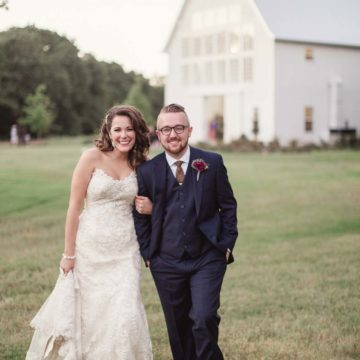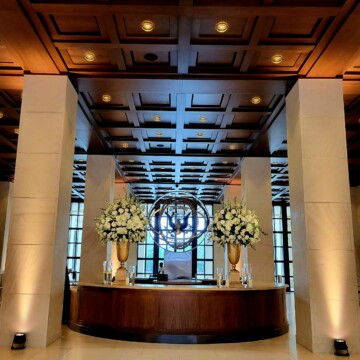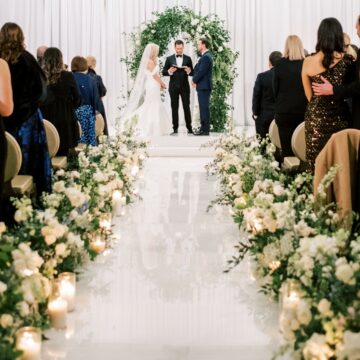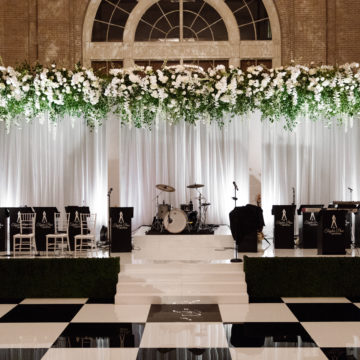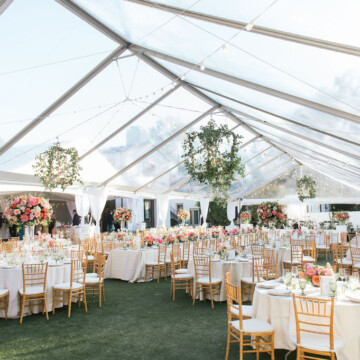Wedding planning can be stressful, and living together for the first time can be full of surprises. Even under the best circumstances, the lead-up to getting married and the first year of marriage are challenging. Couples in 2020 had an extra burden, with pandemic conditions disrupting safety, derailing plans, and perhaps promoting a lot more togetherness than they’d anticipated.
Some found it easy to roll with the punches—So. Many. Punches.—but others found themselves reliving past traumas and struggling with difficult feelings. And though science will eventually resolve COVID-19, the hardship of being a human in an unpredictable world is as eternal as a diamond. So we asked three local couples counselors to share their advice on managing adversity and creating a union that’s stronger than the next big blow.
“Love wasn’t canceled. Celebrations will still happen,” says Melissa Hudson, Ph.D., a Licensed Marriage and Family Therapist Supervisor (LMFT-S) and founder of Counseling Solutions of Texas in Plano. Those are the things Hudson reminded her bride-to-be clients as they realized their weddings were unlikely to go down as envisioned. But what comes next is advice for all times: “Figure out what matters to you and then evaluate your efforts and energy and finances—and align with that. Live to your values.”
Those values will be different for each couple, and what matters a few years from now may be very different from what matters today. A shift in priorities will happen as careers evolve and children are born. Those shifts can cause a relationship to become unbalanced, Hudson says. “It’s important to understand that and normalize that and make adjustments along the way.”
Normalizing your experiences is incredibly important, says Liz Higgins, LMFT-S, who founded Millennial Life Counseling in Dallas. Higgins says in times of crisis, one of two things happens with couples: they are drawn more closely together or they start to feel polarized. Both reactions are normal—and though the former feels a lot safer, the latter doesn’t mean you picked the wrong partner. It likely means, however, that you need to work on communication skills.
Higgins spends a lot of time talking with clients about communication styles and effective discourse, helping them learn to show up and listen to each other without being protective and defensive. Be intentional about cultivating a deeper understanding of your partner, she says. “When you’re willing to tune into your partner’s experience, you are set with a new understanding, and from there the defensiveness can come down and the curiosity can rise.”
Marci Stiles, MA, LPC-S, CPC, a Licensed Professional Counselor, Supervisor; Professional Life Coach; and founder of Positive Outlook Counseling in Far North Dallas, agrees. “Understand that your partner has your back and interact from that point,” she says.
Stiles, Higgins, and Hudson all emphasize the importance of managing expectations and anxiety. In some ways the two are linked: When life fails to meet expectations, we feel stress and disappointment, and when we worry about circumstances beyond our control, anxiety can take over. Having a plan for managing anxiety has never been more important, they say. Daily exercise, leaning into close relationships, meditation, and making time to do the things you love are all good ways to combat anxiety.
As the name of Stiles’ practice implies, she also wants couples to focus on the positive aspects of struggle. Higgins, too, encourages couples to reframe difficulty. “This is hard right now, but look at what you’re working together to figure out. How great is this opportunity for your relationship to strengthen these muscles?” she says.
In uncertain times, one thing is for sure: Investing in yourself and your partner helps create a foundation that will undoubtedly serve you well for years to come. As Higgins likes to say: “The wedding is bought, but the marriage is built.”


